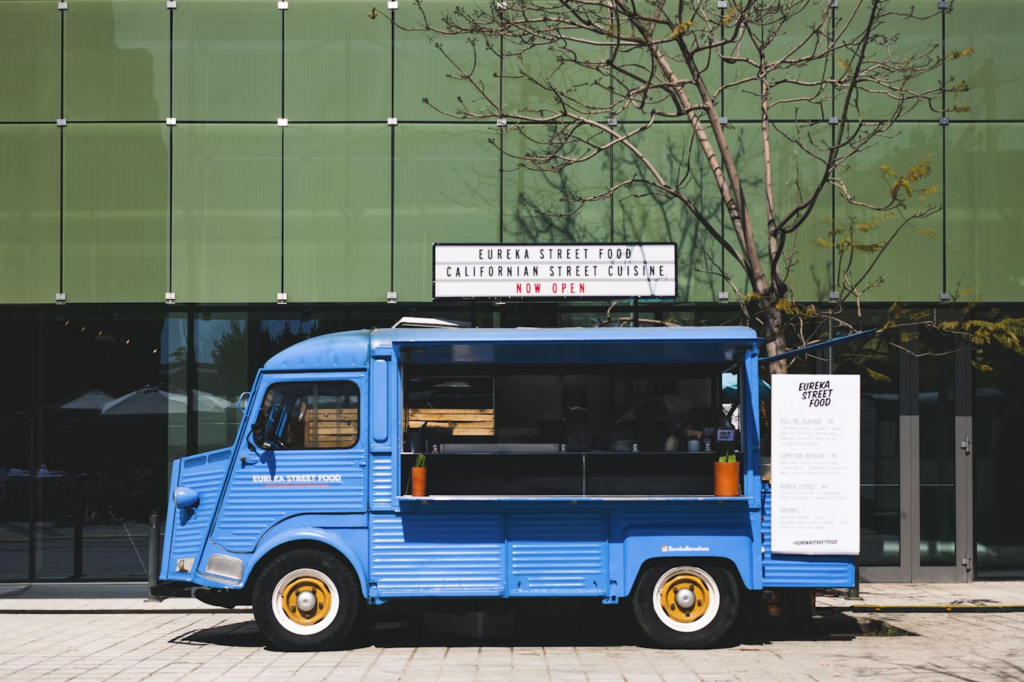The food industry has evolved significantly over the years, with many entrepreneurs opting for food trailers instead of traditional restaurants. This shift is largely driven by the demand for affordable, flexible, and mobile dining options that cater to a wider audience. Investing in a food trailer not only reduces overhead costs but also provides business owners with an opportunity to reach multiple locations, experiment with their menu, and maximize profits without the burden of high rental expenses. If you’re considering venturing into the food business, Bistro Trailers offers high-quality, customizable food trailers that provide a cost-effective solution for aspiring restaurateurs. Their expertly designed trailers are built to enhance efficiency, mobility, and customer engagement, making them an excellent alternative to traditional dining establishments.
-
Table of Contents
Lower Startup and Operational Costs
One of the biggest challenges in the restaurant industry is the high startup cost. Renting a commercial space, designing the interior, acquiring equipment, and hiring staff can cost thousands, if not hundreds of thousands, of dollars. In contrast, a food trailer requires significantly less investment. With a food trailer, you eliminate costly leases, reduce utility expenses, and minimize payroll costs, allowing for a quicker return on investment.
-
Mobility and Flexibility
Unlike brick-and-mortar restaurants, food trailers are not limited to one location. Owners have the advantage of moving to different areas based on customer demand, weather conditions, or event opportunities. Whether it’s a busy city street, a music festival, or a private event, food trailers allow entrepreneurs to take their business directly to their customers, ensuring a steady flow of revenue throughout the year.
-
Lower Risk and Higher Profit Margins
Since food trailers operate at a fraction of the cost of traditional restaurants, business owners face less financial risk. Even if sales fluctuate, the lower overhead expenses mean that food trailer operators can still turn a profit. Additionally, menu pricing can be more competitive, as food trailers often have fewer staff and lower ingredient costs, resulting in higher profit margins.
-
Easier to Test and Expand
A food trailer is a great way to test new recipes, concepts, or branding ideas without the long-term commitment of a full-scale restaurant. Entrepreneurs can analyze customer feedback, tweak their menu, and perfect their business model before considering expansion. If the food trailer business proves successful, owners can eventually expand into multiple trailers, catering services, or even a physical restaurant.
-
Ability to Cater to Events and Festivals
One of the most lucrative aspects of owning a food trailer is the ability to serve food at events, festivals, and private gatherings. Unlike a traditional restaurant that relies on foot traffic, food trailers can be booked for corporate events, weddings, and concerts, providing a steady stream of revenue and exposure to new customers.

Many businesses thrive on catering opportunities, which significantly boosts their income.
-
Less Staffing Requirements
Running a restaurant requires hiring multiple chefs, waitstaff, and managers. A food trailer, however, can operate with just a small team or even a single owner. This not only cuts down on payroll expenses but also makes it easier to maintain quality control and ensure excellent customer service. Having a leaner workforce reduces operational complications, making the business easier to manage.
-
Easier to Adapt to Changing Trends
The food industry is constantly evolving, and trends shift rapidly. A food trailer allows for quick menu changes and adaptations without significant financial risk. Whether it’s incorporating plant-based options, seasonal specialties, or fusion dishes, food trailer owners can experiment with new ideas and stay ahead of industry trends without revamping an entire restaurant setup.
-
Enhanced Customer Interaction
Unlike traditional restaurants where customers are seated and served by waitstaff, food trailers create a more personal and engaging experience. Customers often interact directly with the chef or owner, making the experience more memorable and fostering brand loyalty. This direct engagement allows food trailer owners to build strong relationships with their audience, leading to repeat customers and positive word-of-mouth marketing.
-
Less Risk of Business Failure
The restaurant industry has a notoriously high failure rate, with many establishments closing within the first few years due to financial strain. Food trailers, on the other hand, require a smaller initial investment and offer greater flexibility, making them less risky ventures. Owners can quickly relocate if a particular location isn’t profitable, try new marketing strategies, or pivot their menu based on demand.
-
Opportunity to Go Digital and Optimize Sales
With the rise of digital marketing and online food ordering, food trailer owners can leverage social media, food delivery apps, and online advertising to attract customers. Posting location updates, engaging with followers, and promoting special offers on platforms like Instagram, Facebook, and TikTok can significantly boost sales.

Additionally, food trailers can partner with delivery services to expand their reach beyond physical locations.
-
Eco-Friendly and Sustainable Business Model
Many food trailers operate with lower energy consumption and waste production compared to traditional restaurants. Since they are smaller, they require less electricity, water, and resources, making them a more sustainable option for environmentally conscious entrepreneurs. Additionally, food trailers can incorporate eco-friendly practices, such as using biodegradable packaging and locally sourced ingredients.
-
Easier to Maintain and Upgrade
Maintaining a restaurant involves constant upkeep, from repairing kitchen equipment to renovating the dining area. Food trailers, on the other hand, require less maintenance and can be upgraded or customized with modern appliances, digital menus, and advanced kitchen setups without the high costs of restaurant renovations.
-
Potential for Franchising
Successful food trailer businesses can easily transition into franchises, allowing entrepreneurs to scale their brand and expand to new locations without the massive investment required for restaurant chains. Many popular food brands started as small mobile businesses before growing into national franchises.

